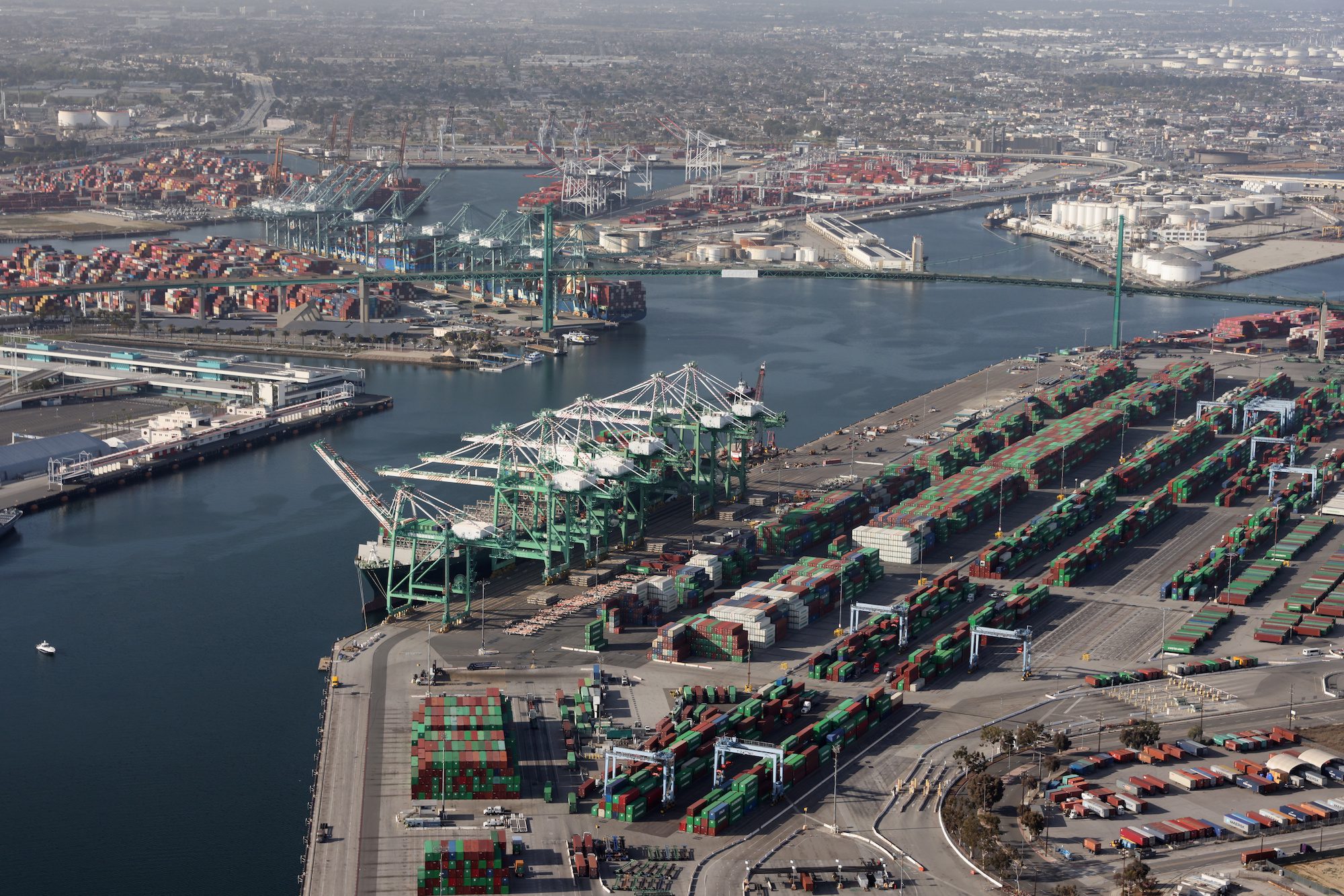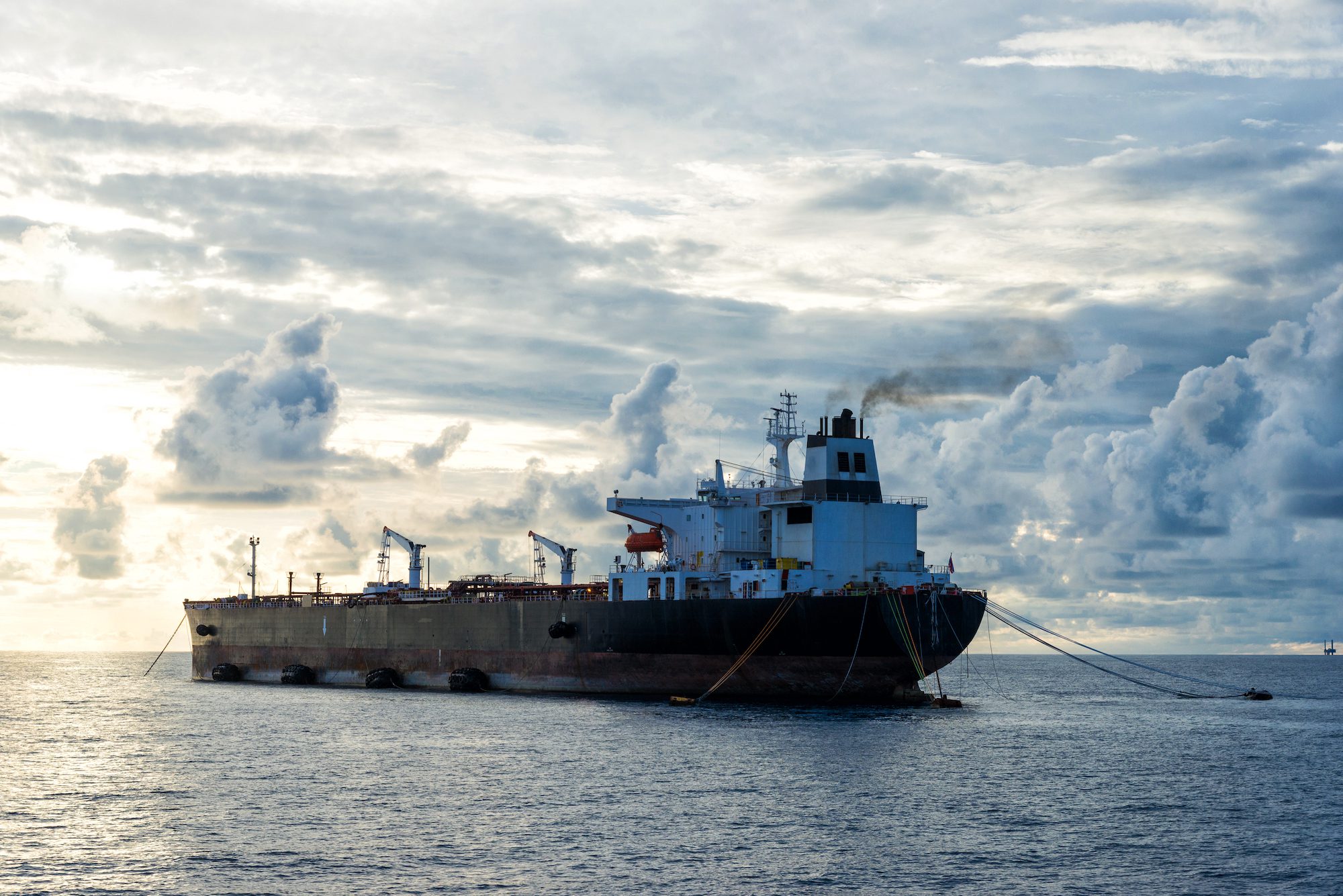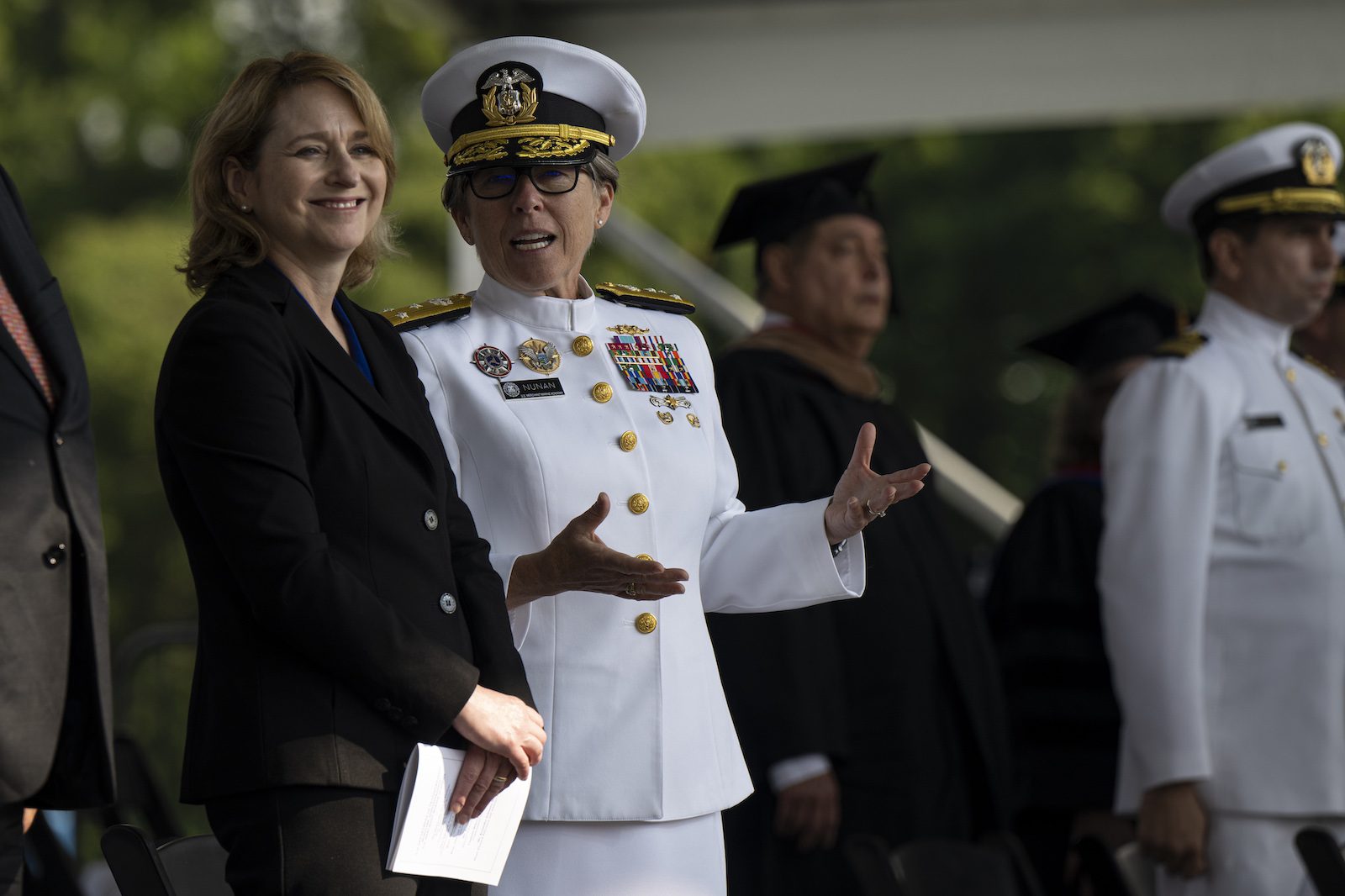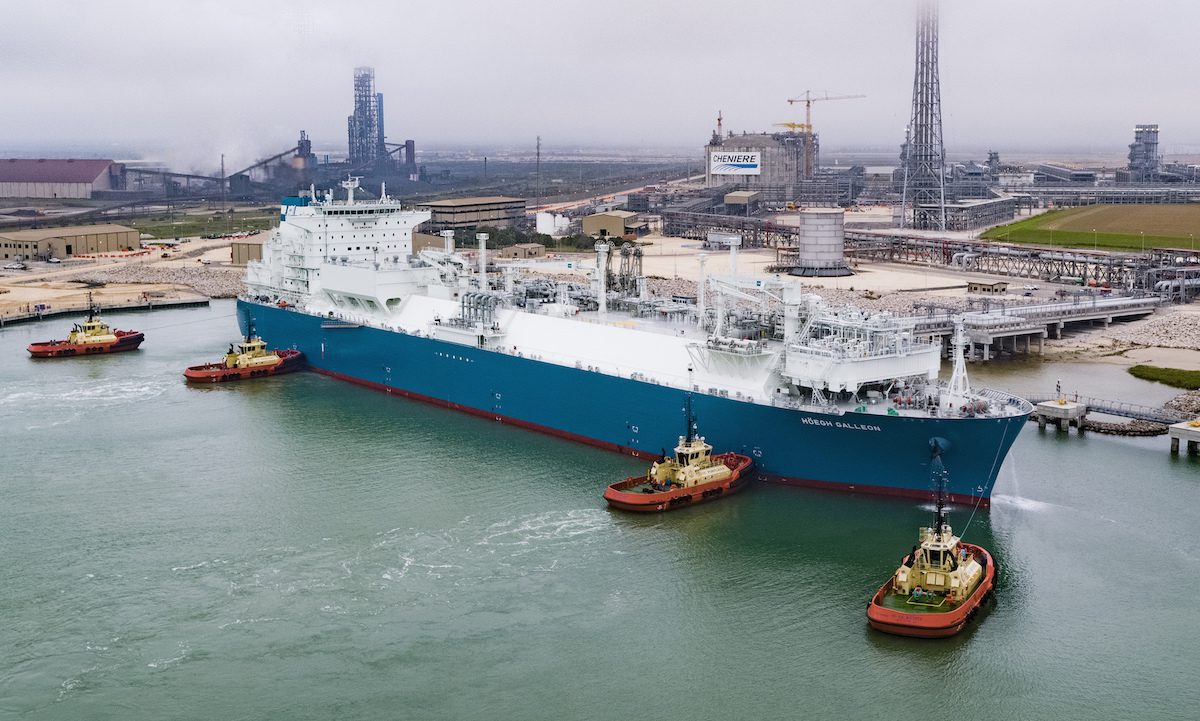FMC Commissioner Rebecca Dye on Tuesday released her long-awaited final report from her fact finding investigation into the effects of COVID-19 on the ocean shipping supply chain, formally known as Fact Finding 29.
The Federal Maritime Commission (FMC) ordered Fact Finding 29 back in March 2020 to investigate COVID-19 induced congestion and bottlenecks at ports and other points in the supply chain that posed a serious risk to the U.S. economy. The investigation involved hundreds of supply chain stakeholders, including U.S. importers, exporters, truckers, and others participating through virtual meetings, phone conversations, emails, and presentations to various groups.
On Tuesday, the FMC announced that Commissioner Dye had presented her final report along with twelve final recommendations during a meeting of the FMC back on May 18, which has now been made public. The report, which has only been presented to the FMC but not adopted by its commissioners, provides a fascinating look into many of the issues facing the U.S. container shipping market in the wake of the COVID-19 pandemic.
Most notably, throughout the course of the investigation American importers and exporters continued to highlight two recurring pandemic-related concerns: the high cost of shipping cargo and excessive demurrage and detention charges.
As the economic recovery from the pandemic has progressed, international ocean carriers, and the ocean three major *ocean alliances they participate in, have faced growing criticism and accusations of anti-competitive behavior, including from The White House, as freight rates have reached “disturbingly high” levels that have helped these companies to record profits. But in her final report, Dye said she found the pricing of ocean transportation is a product of the market forces of supply and demand, pointing instead to a combination of unusually strong demand from U.S. consumers, COVID-19, and congestion in the supply chain—not a lack of competition—as the cause of soaring freight rates.
According to Commissioner Dye’s findings, the number of major ocean carriers in the trans-Pacific and Atlantic trades decreased from 20 in 2015 to 11 by 2022. Yet despite this consolidation, Commissioner Dye found that the market for container shipping services to the U.S. is either “not concentrated” or only “minimally concentrated”, and competition in the market is “vigorous.” In her conclusion, she writes:
“The Fact Finding Officer has concluded that… the current market for ocean liner services in the Trans-Pacific trade is not concentrated and the Trans-Atlantic trade is only minimally concentrated. Competition among ocean common carriers, among the three major alliances and among the members in each of these alliances, is vigorous. The market for ocean services remains highly contestable, particularly in the Trans-Pacific trade. Finally, the Fact Finding Officer concludes that although certain ocean transportation prices, especially spot prices, are disturbingly high by historical measures, those prices are exacerbated by the pandemic, an unexpected and unprecedented surge in consumer spending, particularly in the United States, and supply chain congestion, and are the product of market forces of supply and demand.
“The historically high freight rates experienced recently by U.S. exporters and importers have been devastating to many, but I want to emphasize that the Commission has done its job during the COVID-19 pandemic to enforce our competition authority,” commented Commissioner Dye. “Our markets are competitive and the high ocean freight rates have been determined by unprecedented consumer demand, primarily in the United States, that overwhelmed the supply of vessel capacity. Congestion further constrained available capacity.”
Detention and Demurrage Charges
Another area of focus of Fact Finding 29 was the practices of ocean carriers related to detention and demurrage charges and other new charges by carriers and marine terminals. On this issue, Commissioned Dye expressed some concern that some carriers aren’t in full compliance with the “incentive principle” of the FMC’s Interpretive Rule on Demurrage and Detention (i.e. that detention and demurrage fees must facilitate freight fluidity), despite the actions of a new FMC Vessel-Operating Common Carrier Audit Program and some recent compliance efforts.
“I am pleased that during the pandemic the Commission has moved forward on enforcement of the Interpretive Rule on Detention and Demurrage and ensuring compliance by carriers with the ‘incentive principle’ embodied in the Rule,” said Commissioner Dye. “I look forward to implementation by the Commission of my Final Recommendations, which I believe will provide badly needed clarity and consistency in certain port and supply chain operations, especially involving ‘earliest return dates’ and ’empty container return’.”
“Exemption” from Antitrust Laws
Another area Commissioner Dye looked at was shipping alliances’ alleged “exemption” from antitrust laws under to the Shipping Act of 1984. However, according to Dye, this “exemption” is an actually an “alternative competition regime,” put in place by Congress and administered and monitored by the FMC.
“During the pandemic, ‘blank sailing’ were a particular concern because of their potentional to be used for anti-competitor purposes. Our monitoring, however, indicated that this reduced service by ocean carriers was driven by port congestion rather than a desire to reduce capacity, and delays and skipped ports have been a frequent occurrence,” Dye said in her report.
Fact Finding 29 Recommendations
Nevertheless, there is a lot to be done in Commissioner Dye’s view to address the numerous concerns voiced by supply chain participants. In July 2021, Commissioner Dye presented the FMC with eight Interim Recommendations, all of which have been implemented with the exception of those that required legislative action. In her final report, Commissioner Dye issued 12 new recommendations that she believes the industry would benefit from. They include:
- A new Commission “International Ocean Shipping Supply Chain Program”;
- A rulemaking to provide coherence and clarity on Empty Container Return practices;
- A rulemaking to provide coherence and clarity on Earliest Return Date practices;
- Continued Commission support for the new FMC “Ocean Carrier Compliance Program” including a new requirement for ocean common carriers, seaports, and marine terminals to employ an FMC Compliance Officer;
- An FMC Outreach Initiative to provide more information to the shipping public about FMC competition enforcement, service contracts, forecasting, and shippers associations, among other topics;
- Enhanced cooperation with the federal agency most experienced in agricultural export promotion, the Department of Agriculture, concerning container availability and other issues;
- A Commission Investigation into practices relating to the numerous charges assessed by ocean common carriers and seaports and marine terminals through tariffs;
- A rulemaking to provide coherence and clarity on merchant haulage and carrier haulage;
- A new “National Seaport, Marine Terminal, and Ocean Carrier Advisory Committee” to work cooperatively with the Commission’s National Shipper Advisory Committee;
- A revival of the Export Rapid Response Team program as agreed by all ocean carrier alliance CEOs;
- An FMC Supply Chain Innovation Teams engagement to discuss blank sailing coordination and information availability; and
- A reinvigorated focus on the extreme supply chain equipment dislocations in Memphis railheads, other rail facilities, and other facilities around the country.
“Commissioner Dye’s work leading this Fact Finding investigation has been invaluable in determining ways the FMC can best assist importers and exporters to manage the supply chain challenges linked with the COVID-19 pandemic,” said FMC Chairman Daniel B. Maffei. “I am eager to work with her and our colleagues to implement the Final Recommendations which will guide the FMC in keeping big players in the ocean shipping industry accountable.”
Commissioner Dye’s report comes two months after the U.S. Senate passed its Ocean Shipping Reform Act of 2022, which, if the House of Representatives signs on, would greatly increase the FMC’s regulatory clout.
While not specifically referenced in the report, Dye writes in her conclusion:
The Fact Finding Officer is also concerned that the Commission lacks the regulatory tools to deal with the numerous new charges imposed on U.S. shippers and truckers by ocean carriers and marine terminals through tariffs and with other supply chain dislocations within the Commissions authority. Several final recommendations by the Fact Finding Officer address these concerns.
Finally, based on the information gathered, the Fact Finding Officer further believes that the most productive path forward for shippers and ocean carriers alike would be to enter mutually enforceable and binding service contracts — true “meeting of the minds” — that are enforceable commercial documents. For some time, the Fact Finding Officer has been concerned that the contracts negotiated by many U.S. importers and exporters lack this mutuality of understanding and obligation and are not enforceable. Without enforceable contracts, shippers are unable to protect themselves from volatile shipping rates and ocean carriers have few forecasting tools to provide the shipping capacity necessary to serve their customers.
Read the report: Fact Finding 29 Final Report
*Shipping alliances, or vessels sharing agreements, allow carriers to share vessels, exchange space, and coordinate scheduling and utilization.

 Join The Club
Join The Club











